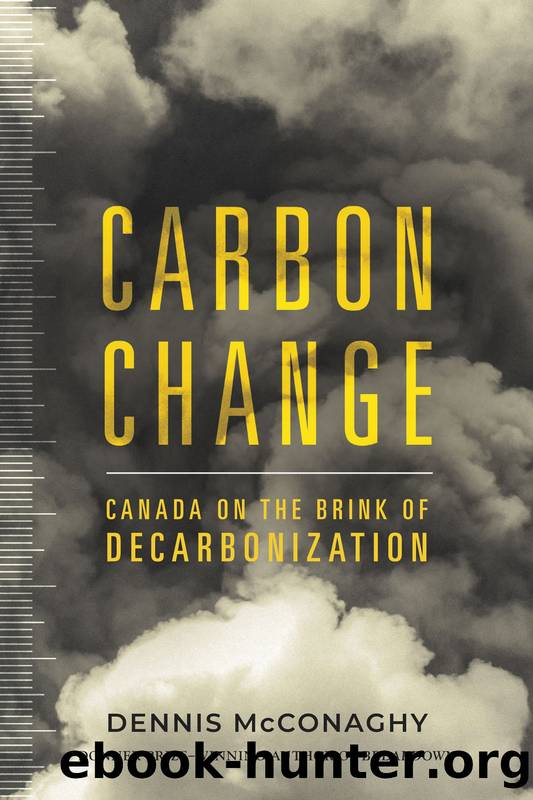Carbon Change by Dennis McConaghy

Author:Dennis McConaghy
Language: eng
Format: epub
Publisher: Dundurn Press
It is important to note that in neither Finkâs 2020 nor his 2021 CEO letter does he acknowledge that BlackRockâs commitment to decarbonization requires the virtual elimination of the hydrocarbon production sector. Or that under-investment in hydrocarbon production and related infrastructure over previous years, in part due to ESG decarbonization advocacy, contributed to the energy crisis in Europe over the winter of 2021 and 2022, as well exacerbating geopolitical tensions in the region. He certainly not does discuss the net cost or benefit of decarbonization as an issue deserving of continuing debate, nor balance in how corporations attempt to project the ultimate policy response.
In May 2021, three of the worldâs major integrated hydrocarbon production entities were impacted by this phenomenon. First, ExxonMobil lost a proxy battle after certain shareholder activists, supported by some key asset managers, including BlackRock, found the companyâs approach to energy transition deficient. As a result, ExxonMobil saw three dissident directors appointed to its board. That same week, the International Energy Agency (IEA) warned that investment in new fossil fuel projects must stop immediately, to allow the global energy sector to achieve carbon neutrality by 2050. ExxonMobil did not embrace that directive as its basic corporate strategy before or after the shareholder vote, but the voteâs outcome was still a measure of how certain business elites and climate activists had collaborated to press the imperative to transition basic energy systems, seemingly without consideration for shareholder value or what constitutes optimal climate and energy policy.
On the same day as ExxonMobilâs vote, Chevronâs shareholders passed a resolution to reduce emissions from the end use of its products. Emissions from gasoline, jet fuel, and petrochemical consumption cannot be reduced materially over the short run, and perhaps not at all in some cases, other than by reducing demand. The resolution was patently absurd without a fundamental reinvention of Chevronâs fundamental value proposition, but nevertheless, it gained 61 percent shareholder support. Finally, contemporaneously, Royal Dutch Shell was ordered by a Dutch district court to amend its corporate strategy to slash its emissions harder and faster. Not surprisingly, Shell responded by appealing and relocating its head office to the United Kingdom.
For decades, these entities, along with BP, had dominated the worldâs private energy production and processing sectors, funding fundamental research into the nature of climate change risk and possibilities of transitioning to less emissive fuels. The assaults on their basic raison dâêtre as corporate entities are emblematic of the radical expectations implicit once the goal of decarbonization is endorsed as some moral imperative to mitigate climate change, regardless of the impacts on shareholder value, not to mention global human welfare. But for the self-avowed elites to so glibly embrace decarbonization without acknowledging its net cost or benefit, and adjusting public policy accordingly, can only remind one of George Orwellâs words, âOne has to belong to the intelligentsia to believe things like that. No ordinary man could be such a fool.â
Download
This site does not store any files on its server. We only index and link to content provided by other sites. Please contact the content providers to delete copyright contents if any and email us, we'll remove relevant links or contents immediately.
The Secret History by Donna Tartt(19092)
The Social Justice Warrior Handbook by Lisa De Pasquale(12191)
Thirteen Reasons Why by Jay Asher(8912)
This Is How You Lose Her by Junot Diaz(6889)
Weapons of Math Destruction by Cathy O'Neil(6281)
Zero to One by Peter Thiel(5802)
Beartown by Fredrik Backman(5759)
The Myth of the Strong Leader by Archie Brown(5509)
The Fire Next Time by James Baldwin(5449)
How Democracies Die by Steven Levitsky & Daniel Ziblatt(5219)
Promise Me, Dad by Joe Biden(5154)
Stone's Rules by Roger Stone(5088)
A Higher Loyalty: Truth, Lies, and Leadership by James Comey(4964)
100 Deadly Skills by Clint Emerson(4927)
Rise and Kill First by Ronen Bergman(4790)
Secrecy World by Jake Bernstein(4753)
The David Icke Guide to the Global Conspiracy (and how to end it) by David Icke(4720)
The Farm by Tom Rob Smith(4514)
The Doomsday Machine by Daniel Ellsberg(4490)
